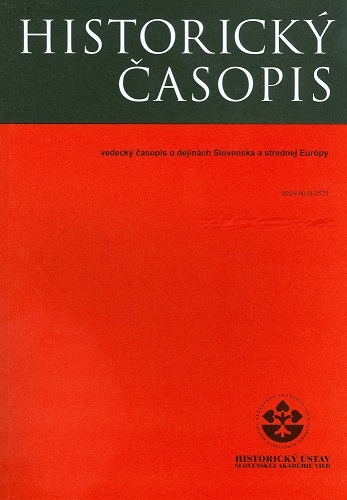
We kindly inform you that, as long as the subject affiliation of our 300.000+ articles is in progress, you might get unsufficient or no results on your third level or second level search. In this case, please broaden your search criteria.

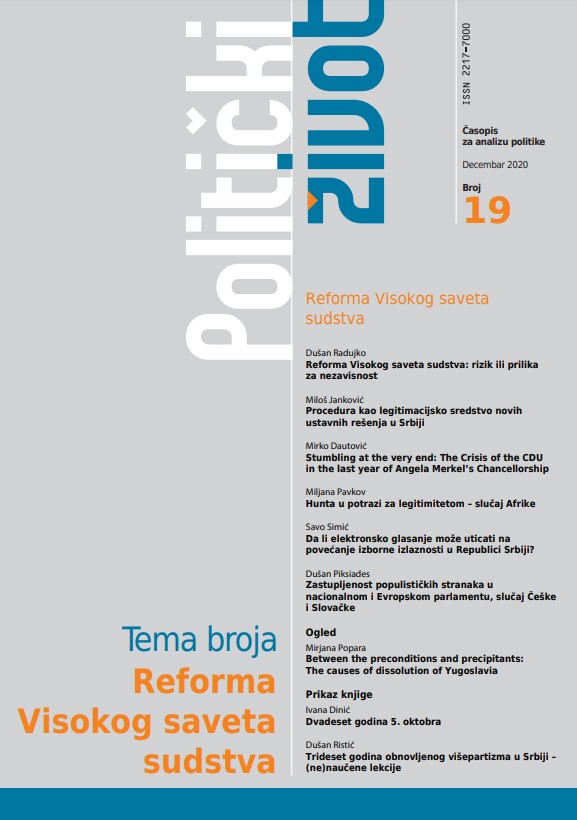
Events from the early 1990s gave a fresh impetus for the scholarly inquiry into the causes of civil wars. The complete breakdown of the political order in Yugoslavia (1991-1995) and civil war in Rwanda (1994) renewed the interest of academics in identifying trends and patterns which precondition escalation of violence. The wider debates on the causes of civil wars usually distinguish between the objective factors such as the demographic structure of the population, type of political system and the level of economic development which make one society vulnerable to the outbreak of violence. Nevertheless, the tendency to analyze the objective reality which precludes the conflict, often means that the role of individuals, political elites and their incentives for waging a war are ruled out from the explanation. This paper adopts the approach that both the preconditions – objective factors and precipitants – triggers and catalysts of the conflict are important in determining its cause. In an attempt to enlighten the factors which contributed to the dissolution of Yugoslavia, this paper firstly aims to identify underlying tensions in Yugoslav society prior to its collapse. Secondly, it analyses the role of individuals in igniting the conflict. Finally, it concludes whether the approaches which emphasize the preconditions or precipitants offer sufficient explanation on the causes of civil war in Yugoslavia.
More...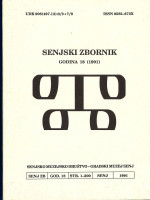
Die Aufgabe dieses Artikels war, vor allem, die Analyse des Laufes der Senjer Geschehnisse vom 9. Mai 1937, wie auch die Beschreibung des Widerhalls in der ÖffenÜichkeit, der gleich nach dem Verbrechen der Gendarmen erfolgte. Das Geschehnis wird im Kontext des, durch die politischen Organe durchgeführten, Terrors eingesehen. Der Artikel ist in drei Teile geteilt. Nach einem kurzen Rückblick auf die politischen Umstände in Kroatien und Jugoslawien in der zweiten Hälfte der dreißiger Jahre und auf den Terror, den die Staatsbehörden durchgeführt haben, folgt eine bis auf jedes Detail eingehende Darstellung des Geschehnisses. Danach werden die Reaktion der Offentlichkeit, wie auch verschiedene Formen der nach dem Verbrechen erfolgten Repressionen beschrieben. Als eine eigenartige Illustration des Inhaltes dieser Arbeit werden Faksimile beigelegt. Die Erörterung gründet sich auf der Analyse der Senjer Geschehnisse, die im Archiv des Instituts für zeitgenössische Geschichte in Zagreb aufbewahrt sind. Die Grundquellen dieser Analyse sind: Berichte der Polizeiverwaltung in Zagreb, die Tatbestandaufnahme, die durch den Inspektor der königlichen banischen Verwaltung J. Tucan durchgeführt wurde, Berichte des Staatsvorstehamtes in Senj, Flugschriften die nach dem Geschehnis gedruckt wurden und die Todesanzeigen der Umgekommenen. Ein originelles Kennzeichen hat auch die Broschüre von Dr. Vlatko Maček »Istina o krvavim događajima u Senju dne 9. 5. 1937« (»Die Wahrheit über die blutigen Geschehnisse in Senj am 9. Mai 1937«, Zagreb.)
More...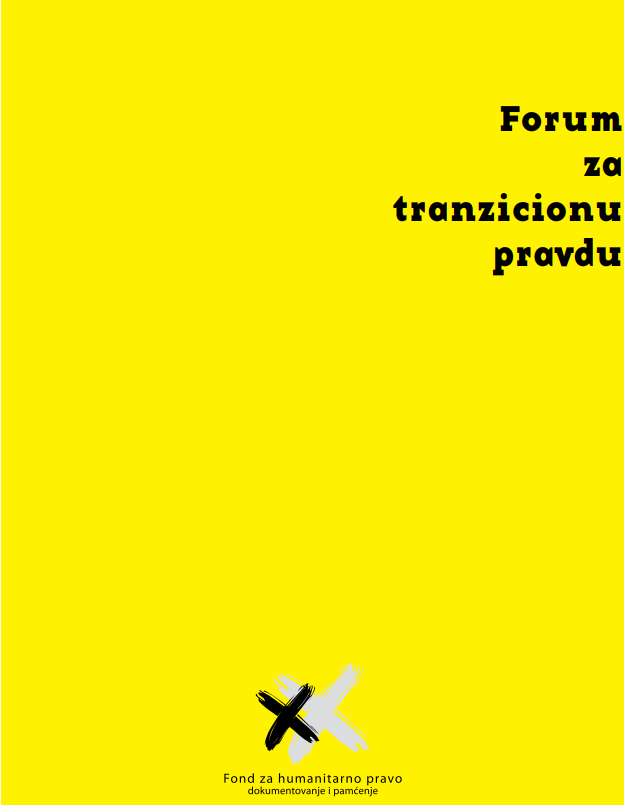




Milošević (IT-02-54) “Kosovo, Hrvatska, BiH” Iz transkripta audio-zapisa sa suđenja Slobodanu Miloševiću.
More...
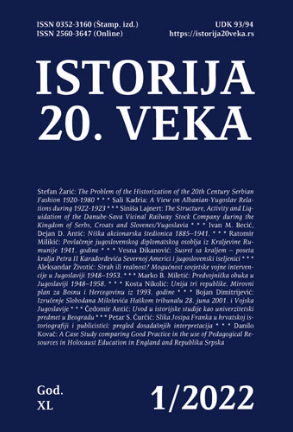
This article scrutinizes the plan for ending the war in Bosnia-Herzegovina, which was in consideration from June to December of 1993. This peace plan was constructed by the United Nations and the European Union and its intermediaries, Thorvald Stoltenberg and David Owen. The search for a new peace plan came after the failure of the previous one (the so-called Vance–Owen plan), and the goal of the international community was to find a new solution that could end the war in Bosnia, which was becoming increasingly complicated due to the conflict between the Bosniaks and the Croats. The primary idea implied constructing three republics in Bosnia-Herzegovina, thus abandoning the multiethnic state concept. The emphasis was placed on analyzing the different points of view of the warring parties, including Serbia and Croatia, in order to examine if the plan had the capacity to stop the war and change the course of history of Bosnia-Herzegovina. The main problem was determining what part of the country each of the republics would occupy. The Serb Republic made the biggest compromise by agreeing to give up 20 percent of the area under its control. Parts of the plan were signed over the course of the negotiations from July to September of 1993. Although all three sides signed components of the agreements, the peace plan was rejected by the Bosnian Council in September of 1993. As negotiations continued, the European Union was directly involved through its foreign ministers, but the peace negotiations ended in failure on December 22, 1993.
More...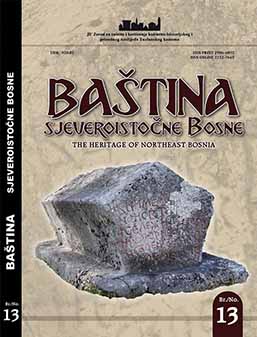
Before the aggression on the Republic of Bosnia and Herzegovina, Bosniaks, Serbs, Croats, Yugoslavs and Others lived together in Bijeljina. According to the 1991 census, there were 96,988 inhabitants in the municipality of Bijeljina. There were 30,229 Bosniaks (31.17%), 57,389 Serbs (59.17%), 492 Croats(0.51%), 4,426 Yugoslavs (4.56%) and 4,452 Others (4.59%). At the same time, the city of Bijeljina had a population of 36,414: 19,024 Bosniaks (52.24%), 10,450Serbs (28.70%), 366 Croats (1.00%), 3,452 Yugoslavs (9.48%) and 3,122 Others.(8.57%). The population of the Municipality lived in the city of Bijeljina and another 58 settlements. Bijeljina, as a strategically important city in the plans and goals of the aggressors, has been the target of attacks since 1991. Aggression and war crimes against Bosniaks were planned, prepared and organized against this Bosnian town. Camps for Bosniaks were organized in Bijeljina, civilians were killed, mass and systematic rapes and other forms of sexual violence were committed, the Bosniak elite was targeted killed and persecuted, civilians were expelled and deported en masse, cultural property and property were destroyed, and all Islamic religiousobjects.On April 1, 1992, Bijeljina was attacked by the so-called "Serbian forces". Thetargets of the attack were Bosniaks, Albanians, Roma and other non-Serbs, who wereunaware of what was happening in their town. They were killed in their houses,apartments, mosques. They were also massacred on Eid al-Fitr, April 4, 1992. Theso-called The Serbian Volunteer Guard (SDG), a special unit of the Serbian StateSecurity Service, led by Zeljko Raznatovic Arkan, which was under the directcommand of Slobodan Milosevic's regime in Serbia, and the "Mirko Chetniks" ledby Mirko Blagojevic. Under Arkan's command was placed the municipalgovernment, the police, the army, the judiciary, the Territorial Defense. Bijeljina wasoccupied. In April 1992 alone, at least 93 civilians were killed in Bijeljina (81Bosniaks, 8 Albanians, 3 Serbs and 1 Croat). From March 31 to April 6, 1992, atleast 55 civilians were killed. Pictures of crimes from the streets of Bijeljina quicklywent around the world, but the international community did not react to the picturesof horror. Bijeljina was a rehearsal for war, murder, war crimes and genocide thatsoon followed throughout the Republic of Bosnia and Herzegovina.The war in Bosnia and Herzegovina ended with the signing of the DaytonAgreement on December 14, 1995 in Paris. According to many researchers, intellectuals of various profiles, the Agreement legalized the genocide of Bosniaks inBosnia and Herzegovina.According to the Dayton Agreement, there are two entities in the internalstructure of Bosnia and Herzegovina: the Federation of Bosnia and Herzegovina,which consists of 10 cantons, and the Republika Srpska. Apart from the two entities,there is also the Brčko District of Bosnia and Herzegovina, which was created by theDecision of the International Arbitration Court. It was established on March 8, 2000.Between 1992 and 1995, approximately 2,2 million people in Bosnia andHerzegovina were forced to flee their homes. After the war, he began to return,among other things, to Bijeljina. The return process of the expelled Bosniaks wasslow and disorganized. The first wave of returns ran from 1996 to 2000. The exilesmostly returned to the local community of Janja. In 1998, the work of the Majlis ofthe Islamic Community in Bijeljina was renewed, and since then the process ofreturning property has begun. Everything went extremely slowly with a lot ofobstruction by the local authorities. However, in 2002, the foundations for all fivedemolished mosques in Bijeljina were "poured out". The mosques were renovatedthanks, among other things, to the funds of whites who lived abroad.An aggravating circumstance for returnees is the fact that the Bosnian languageis denied in the Republika Srpska entity of Bosnia and Herzegovina. Teaching in theBosnian language is prohibited, and the language called the non-existent Bosniaklanguage. This discriminates against students who want their language to be calledBosnian.In addition, high-ranking officials from the Republika Srpska in publicappearances deny the state of Bosnia and Herzegovina and Bosniaks as a people,which affects the perspective of the people of this area.The situation with employment in public administration is not good. Returneesare mainly engaged in agriculture, but here there is a problem of placing surplusproducts.In 2013, a census was conducted in Bosnia and Herzegovina. It was the firstcensus after the war and aggression. The municipality of Bijeljina had 107,715inhabitants, which is 10,727 inhabitants more than in 1991. The population lived inthe city of Bijeljina and another 66 settlements, which is 8 settlements more than in1991. The ethnic structure of the population changed significantly under theinfluence of the war against Bosnia and Herzegovina. In 2013, there were 91,784Serbs, which is 34,395 more than in 1991, 13,090 Bosniaks, which is 17,139 fewer,515 Croats, which is 23 more, and the other 1,550, which is 2,902. persons less thanin 1991. In ethnic terms, there were 674 non-respondents in the municipality ofBijeljina and 102 without answering.The city of Bijeljina had a population of 42,278, which is 5,864 more than in1991. There were 35,798 Serbs, which is 25,348 people more than in 1991, 4,469 Bosniaks, which is 14,555 less, 315 Croats, which is 51 people less, and Others1,159, which is 1,963 people less than in 1991. year. Those who did not declarethemselves in the ethnic sense were 502 and 35 people did not answer.The municipality of Bijeljina had, in the total population, 85.21% Serbs, whichis 26.04% more than in 1991, and Bosniaks 12.15%, which is 19.02% less than in1991. There were 0.03% fewer Croats and 3.14% fewer Others than in 1991.In the city of Bijeljina, there has been a drastic change in the ethnic structure ofthe population compared to 1991. Namely, Bosniaks made up 52.24% of the city'spopulation in 1991, Serbs 28.70%, Yugoslavs 9.48%, Others8.57% and Croats1.00%. The number of Bosniaks decreased by 41.67% and amounted to 10.57% inthe total population of Bijeljina. At the same time, the percentage of Serbs increasedfrom 28.70% to 84.67%. The increase was therefore 55.97%. The percentage ofCroats decreased by 0.25%, and the number of Others by 5.83% compared to 1991.Bijeljina is a typical example of how war, murder, expulsion, rape, intimidation,deportation, forced mobilization, demolition and other means can drastically changethe ethnic structure of a city's population. Certainly, other causes of the reducednumber of Bosniaks in Bijeljina should not be neglected, such as the securitysituation, economic situation, education, road and other infrastructure, etc.
More...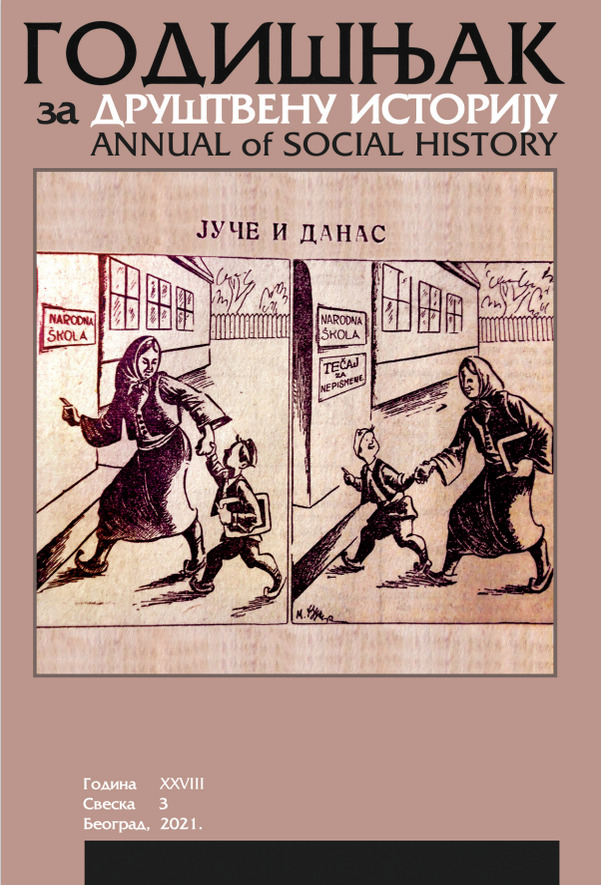
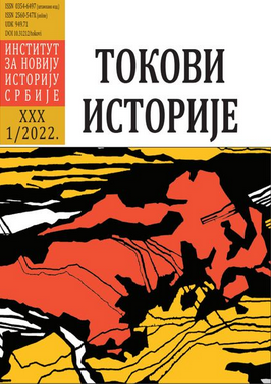
The paper discusses the withdrawal of the Yugoslav People’s Army (JNA) from Bosnia and Herzegovina in the spring of 1992 and the crime committed against its servicemen on May 2 and 3, 1992 in Sarajevo’s city center, especially in Dobrovoljačka Street. The emphasis is placed on the original material that became publicly available after it was included in the files of the International Tribunal for the Prosecution of Persons Responsible for Serious Violations of International Humanitarian Law Committed in the Territory of the Former Yugoslavia since 1991. The documents are available at the public court records database of the Hague Tribunal.
More...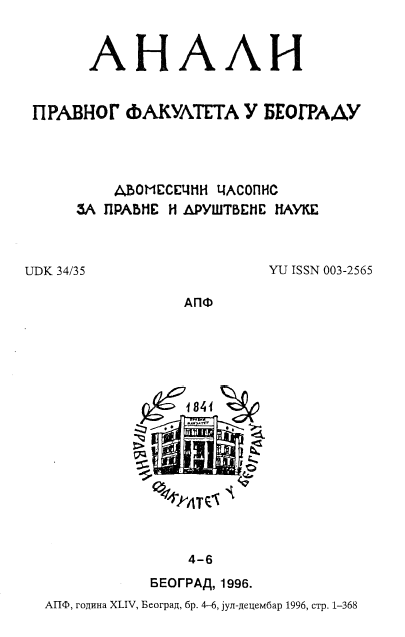
As is the case in some multi-ethnic societies, Yugoslav society, too, had two facets: one is of conflict, struggle and dialectics of power; the other is of interdependence, cooperation and mutual support. Indeed, with this snapshot view, conflict appears deviant, an aberration of the system. However, concensus and equilibrium, rather than conflict was the defining characteristic of the former Yugoslav society.
More...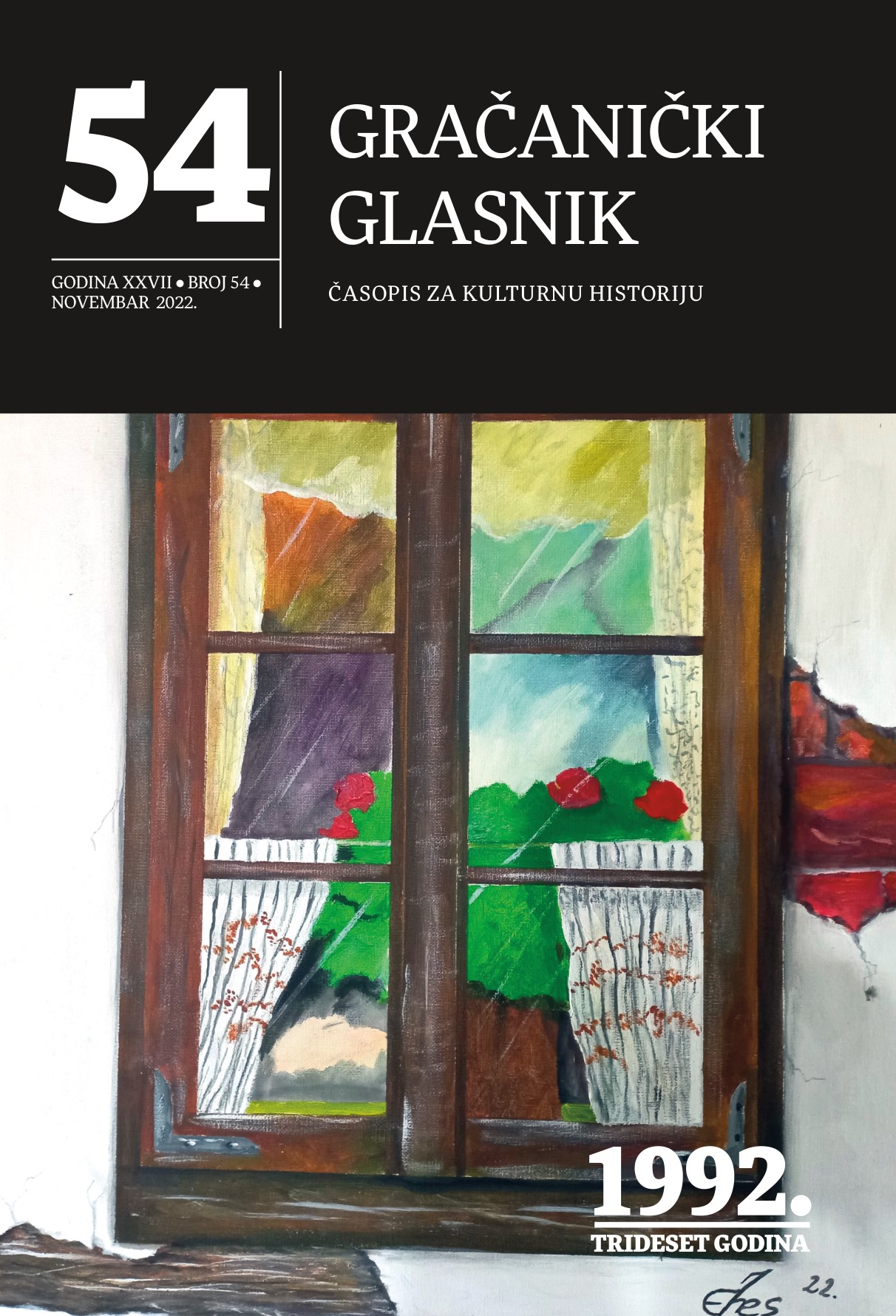
Review of: Julija Bogoeva, Rat u Jugoslaviji u presudama MKSJ: Ciljevi zaraćenih strana i priroda sukoba, Torkel Opsahl Epublisher Brusselas, 2019.
More...
Review of: Jusuf Trbić, Razaranje Bosne, „Bosanska riječ“ Tuzla. „Preporod“ Bijeljina, 2021.
More...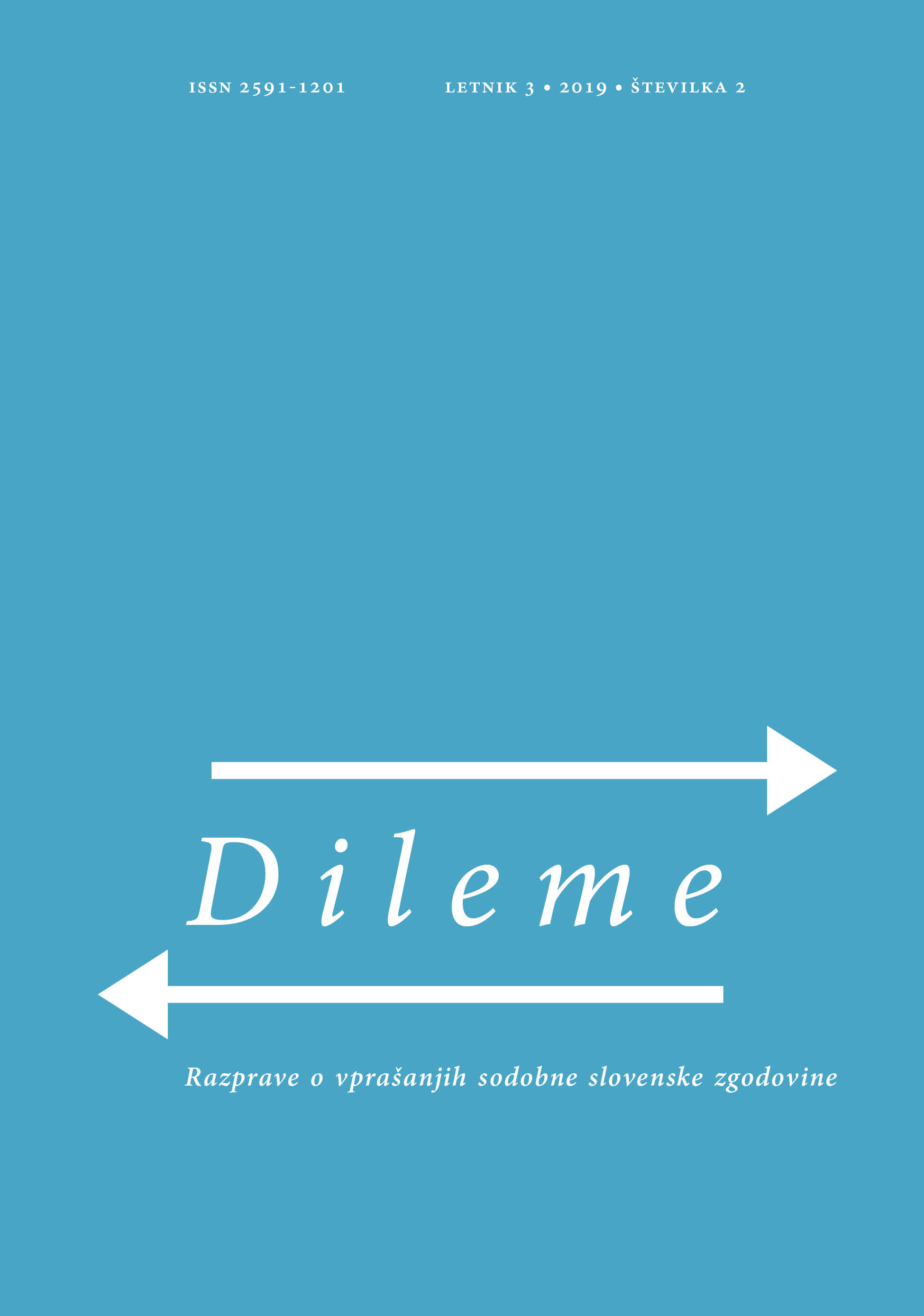
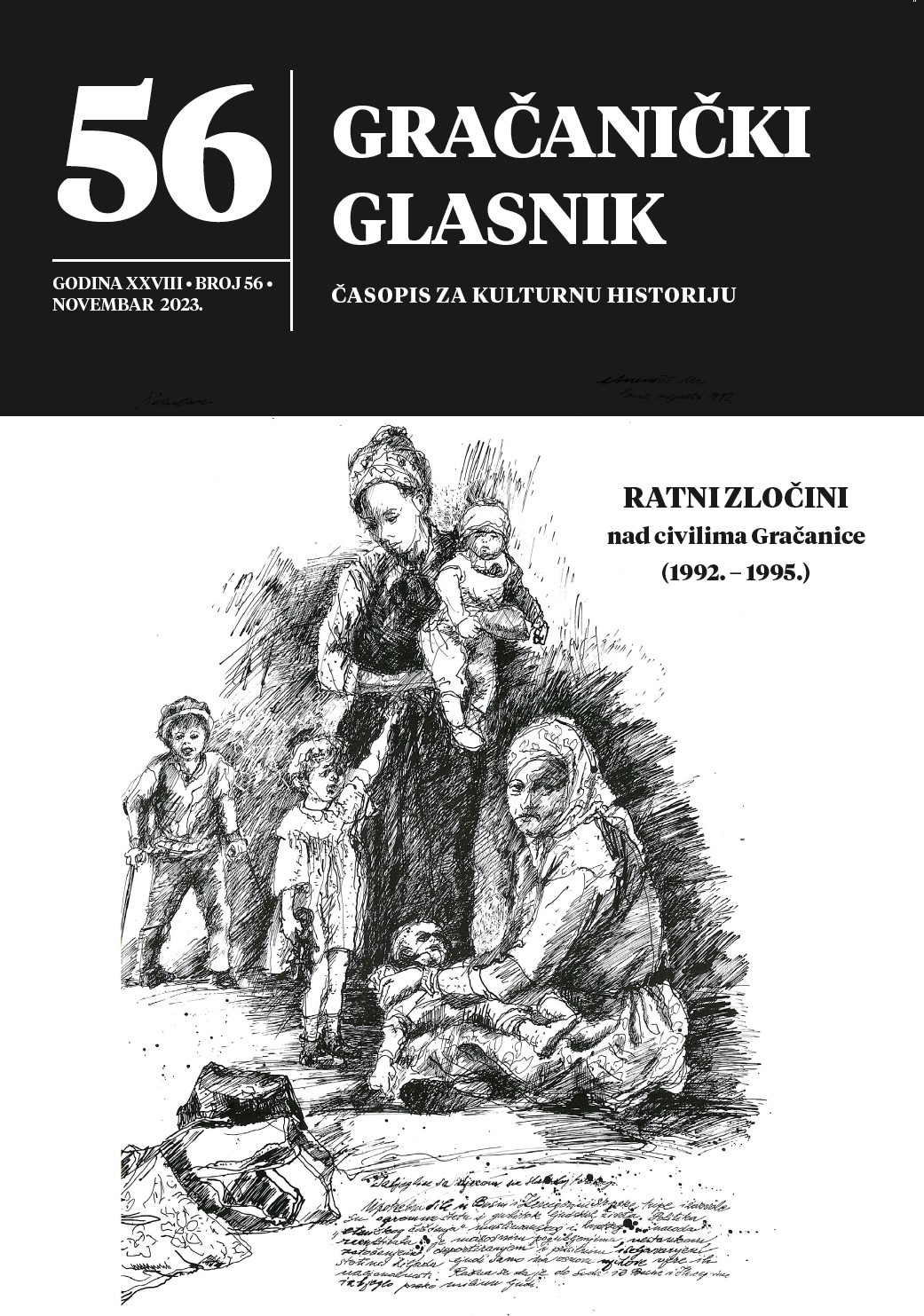
The issues surrounding the criminal prosecution of war crimes that must be addressed in post-conflict societies, such as Bosnia, are by no means simple. On the contrary, after severe conflicts and wars, people living in such societies must continue their lives and confront the question of what to do with a past full of victims, criminals, mass graves, and official denial of these crimes. The prosecution of war crimes is not only a legal matter in our context; it is also a political, national, patriotic, and historical question. All these aspects must be taken into account to understand the perception of all these processes in our society. There are many open and painful questions, and the most challenging is how to prevent that these crimes repeat themselves in the future. The answer is that we must bring history to light, bring criminals to justice, and through fair judgments “reunite the society of former enemies.” Only through justice and truth can a sick society heal, and the peoples on behalf of whom the crimes were committed can experience catharsis. Although in this work, we presented the issues of the criminal prosecution of war crimes from a subjective perspective with a focus on local conditions in Gračanica, we want to emphasize the broader societal dimension and importance of prosecuting war crimes. The criminal prosecution of war crimes and determining the responsibility of the perpetrators cannot be just the interest and need of victims but of the entire society in which many victims and many criminals still live. Relying solely on the expectations and feelings of victims neglects this fundamentally significant societal dimension and reduces the need for the entire society to separate (distance itself) from criminals to a group need, i.e., the need only of those who were victims. Reducing the whole story to the problem of victims has unfortunately become a practice in our public discourse because domestic politicians at all levels push victims forward, thus hiding their inaction and incompetence. On the other hand, prosecutors in Bosnia and Herzegovina face a large number of cases, a lack of staff and resources, as well as a lack of political support. As the Gračanica case is not an exception, we believe that our research effort to collect and publish evidence of committed war crimes could serve as an example for many other communities where nothing has been done either in historical research or in the criminal prosecution of war crimes. For now, we have done everything in our power. Only a few have helped us in this endeavor. We’re thankful for that.
More...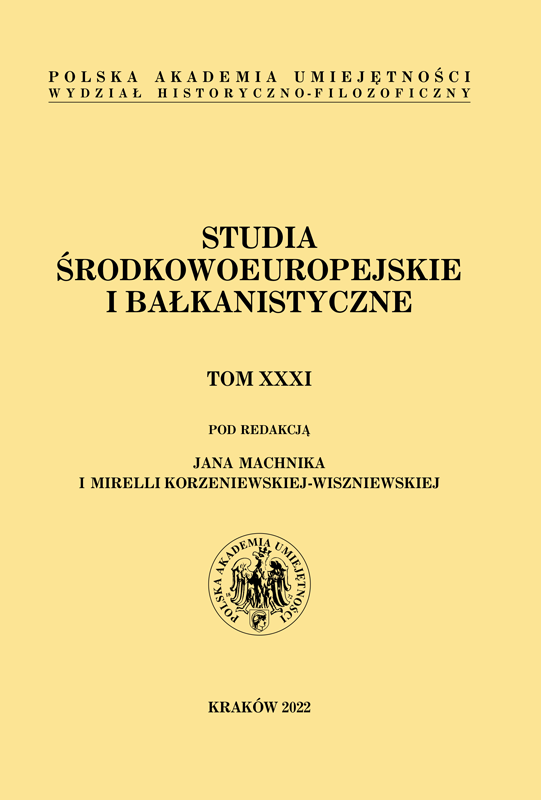
The break-up of the SFRY in 1991 led to a significant reshaping of the region’s political landscape. Four of the six former Yugoslav republics subsequently joined NATO, enhancing the geopolitical stability in the North Atlantic Alliance’s vicinity. Given the intricate socio-political dynamics in Bosnia and Herzegovina and Kosovo, the affiliation of these former Yugoslav republics with NATO undoubtedly contributes to regional stability. Conversely, in the prevailing political climate, the Russian Federation, leveraging its influence among the Bosnian Serbs and within Serbia, is introducing destabilizing factors to the area.
More...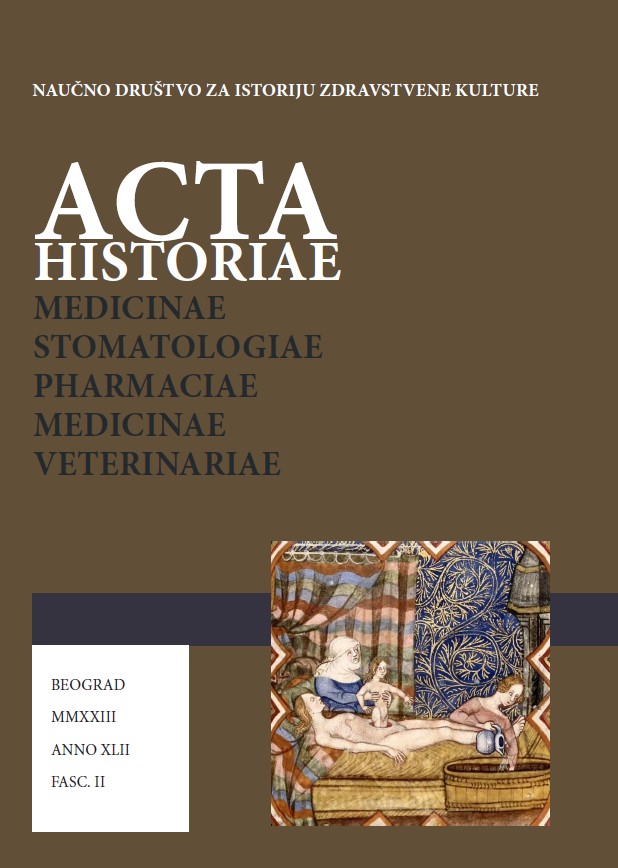
This paper, based on the documentation from the database of the International Criminal Tribunal for the former Yugoslavia (ICTY), is dedicated to the suffering of the “Banja Luka babies”, one of the many cases of tragic childhood during the aggression against Bosnia and Herzegovina in 1992. The case of the agony of new-borns in the Banja Luka Clinical-Medical Centre (CMC) caused controversy in the public. It is the subject of propaganda speculations and various political calculations that do not stop even with the act of presenting the medical documentation of the deceased newborns as exhibits for the defence during the trial of Radoslav Brđanin before the ICTY. Brđanin was found guilty and at the end of the trial sentenced to 30 years in prison for crimes against humanity, violations of laws and customs of war, and serious violations of the 1949 Geneva Conventions.
More...